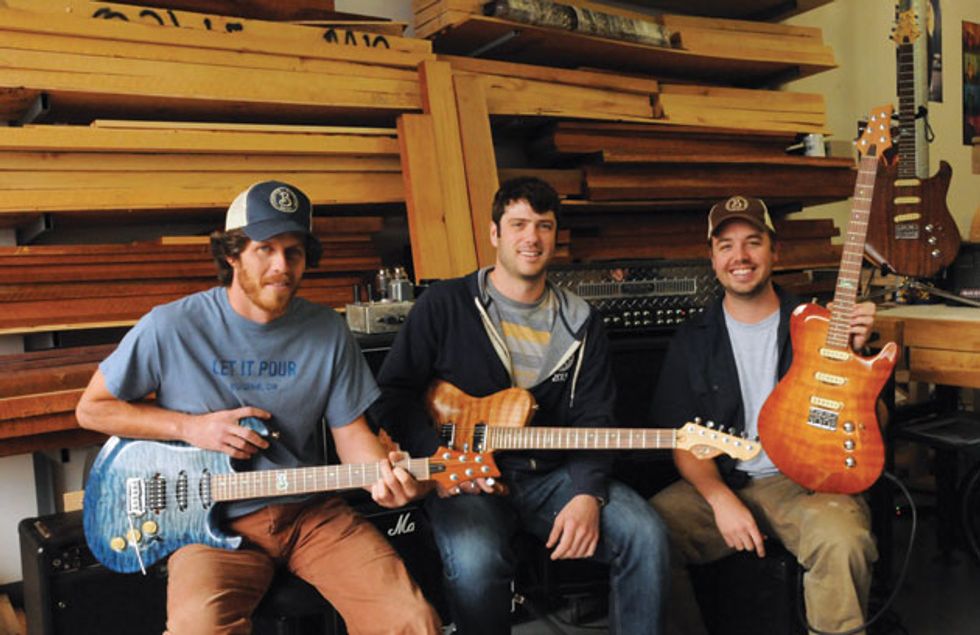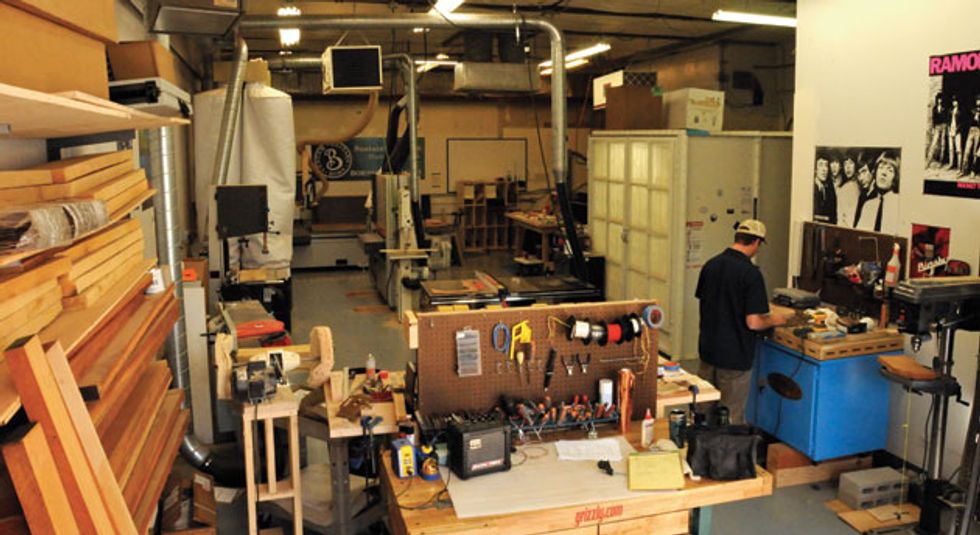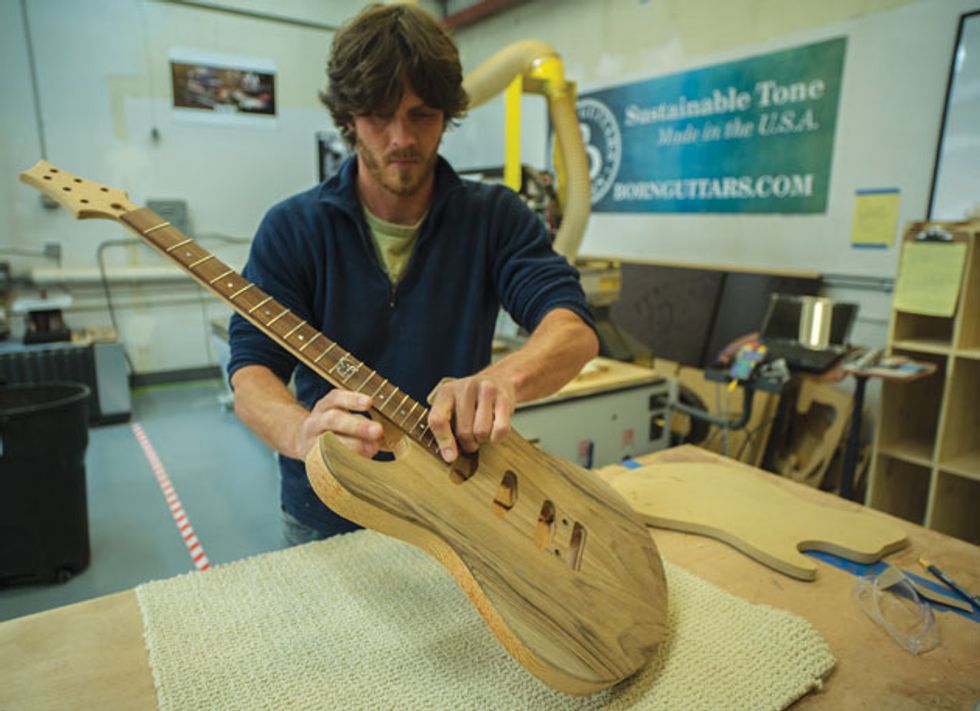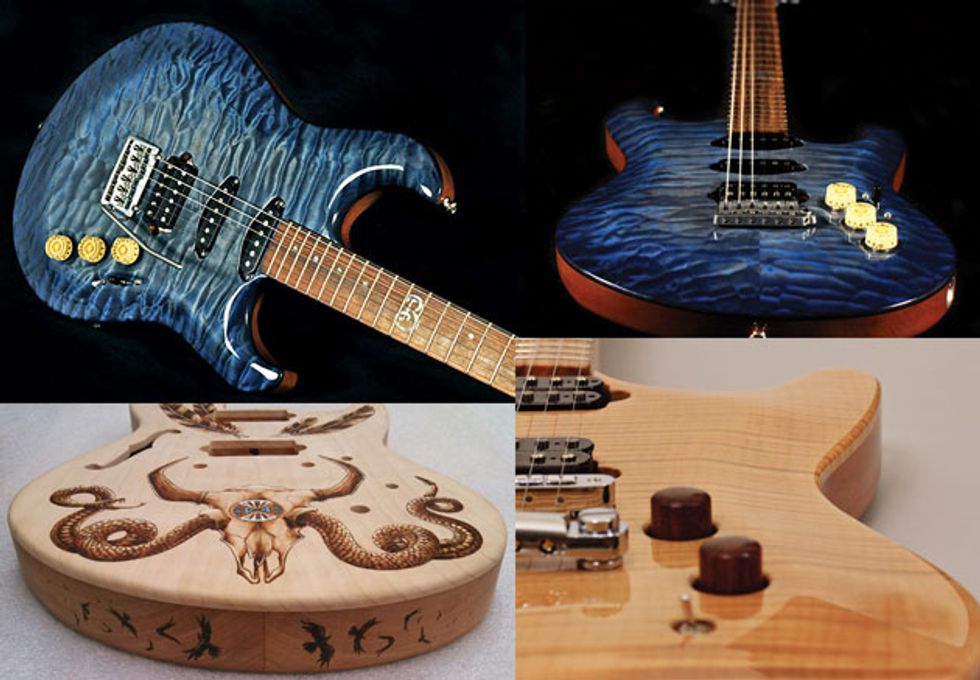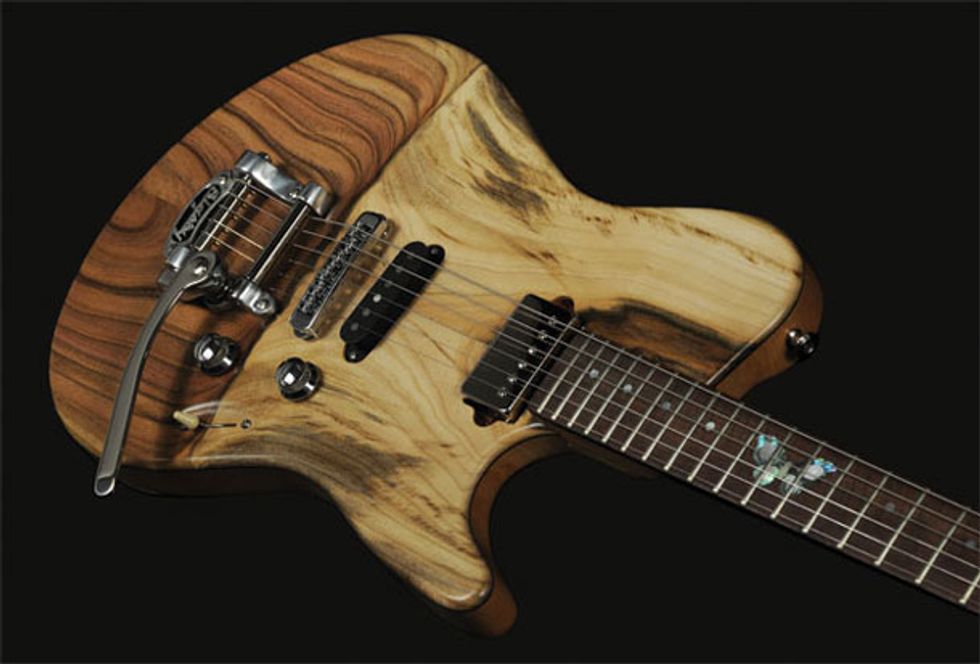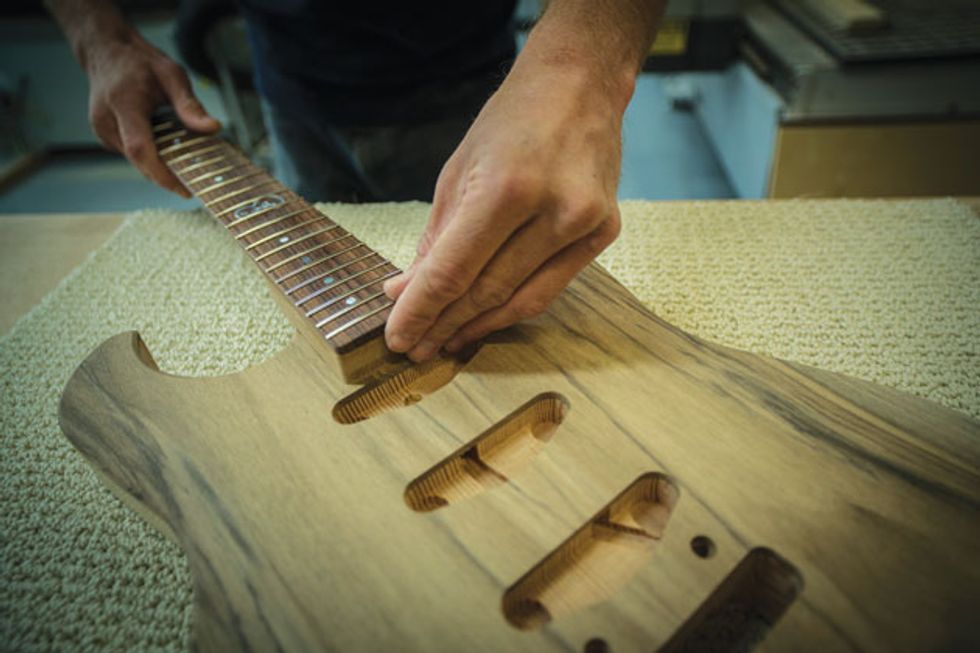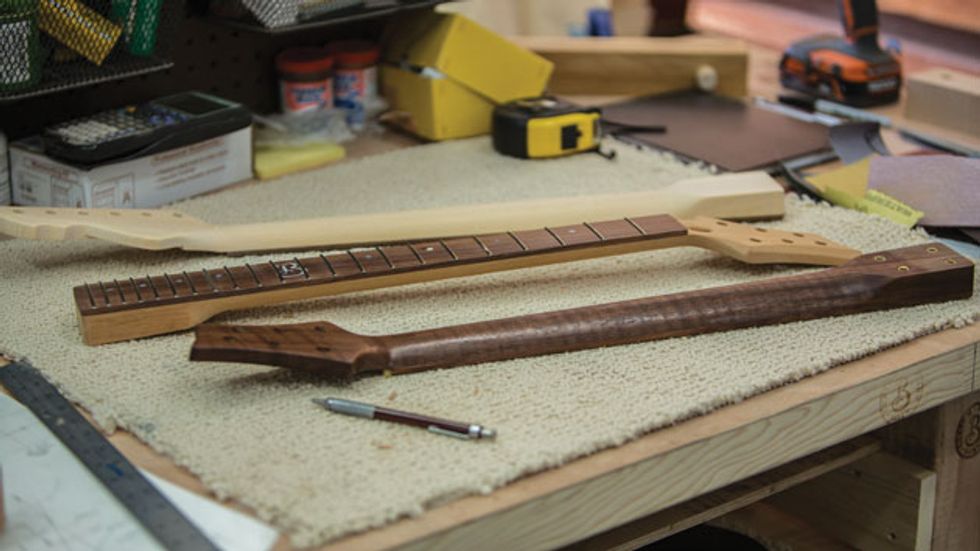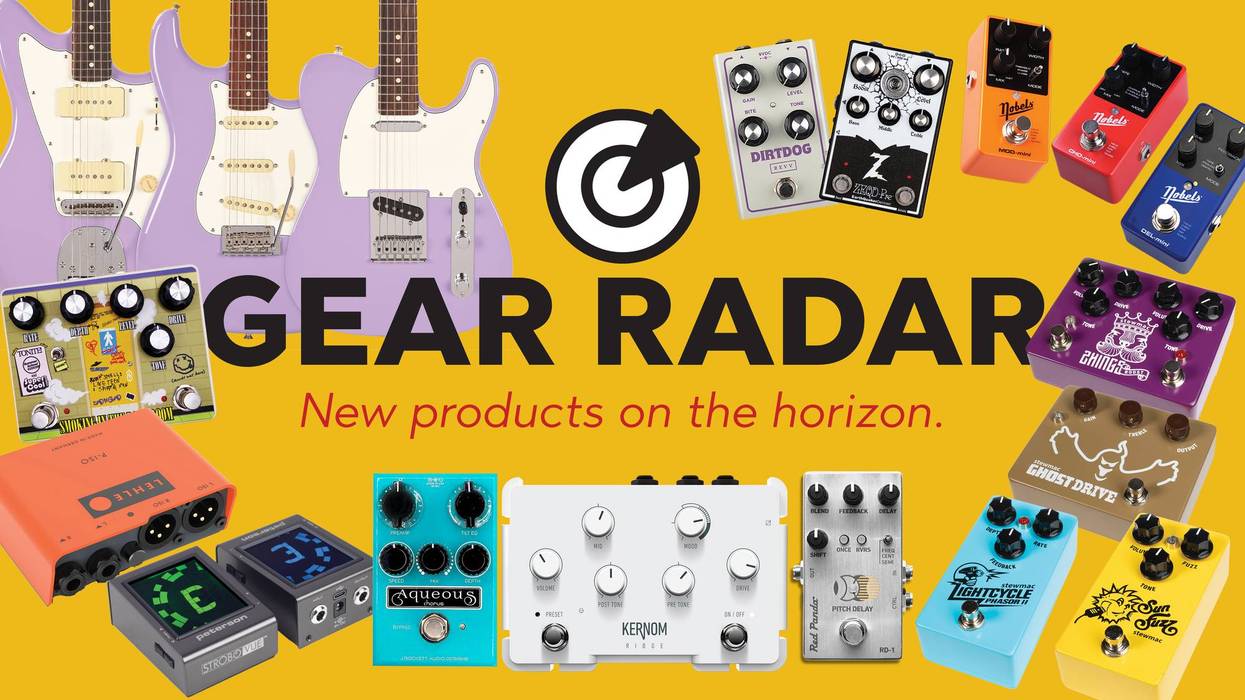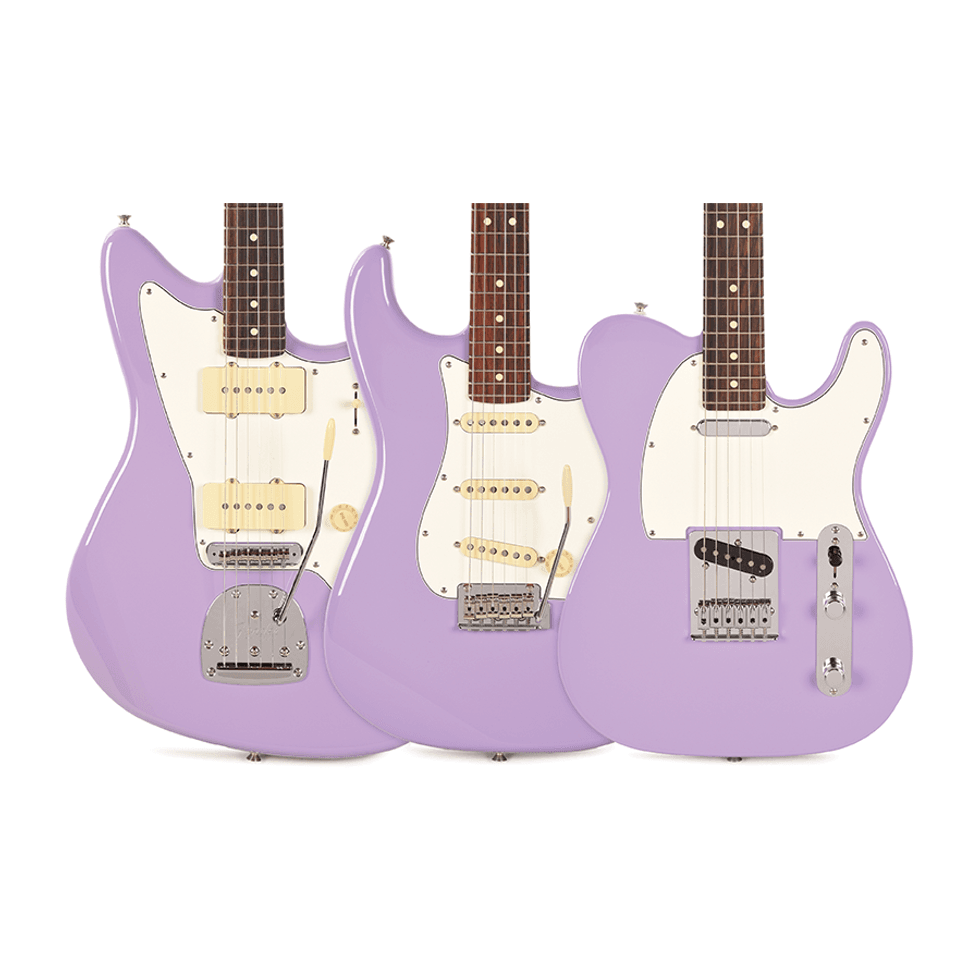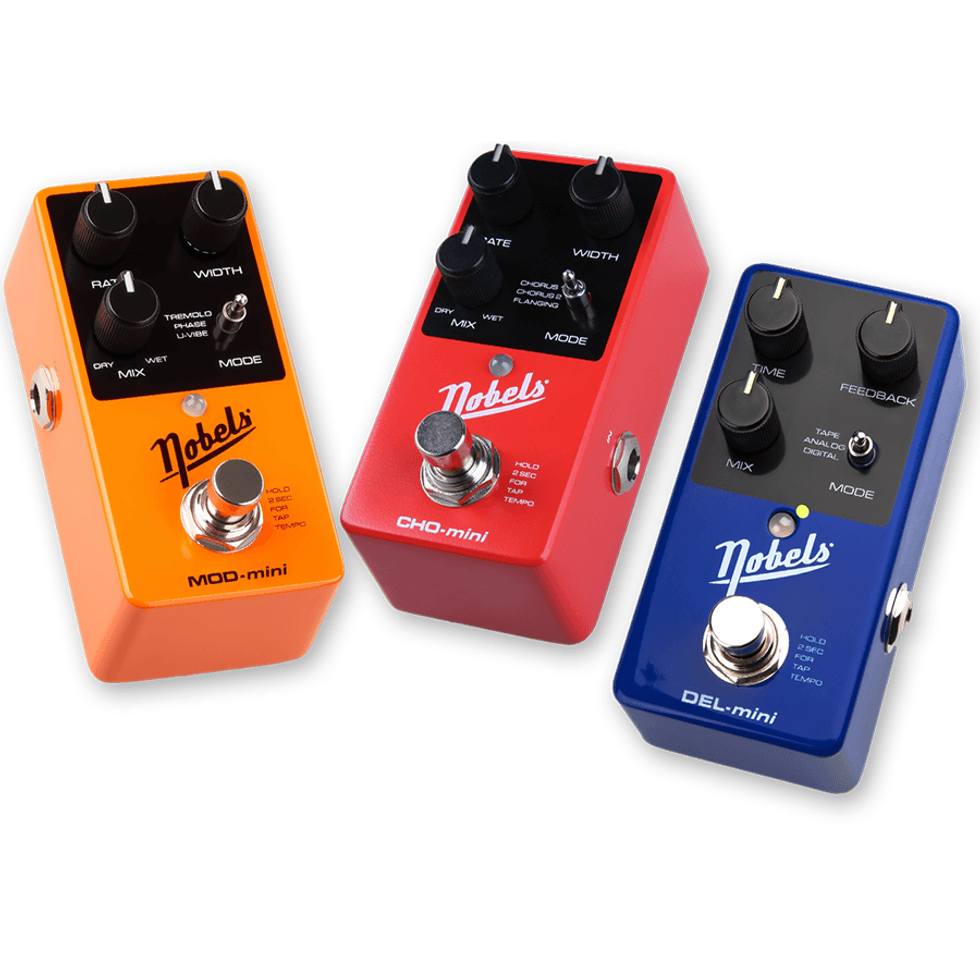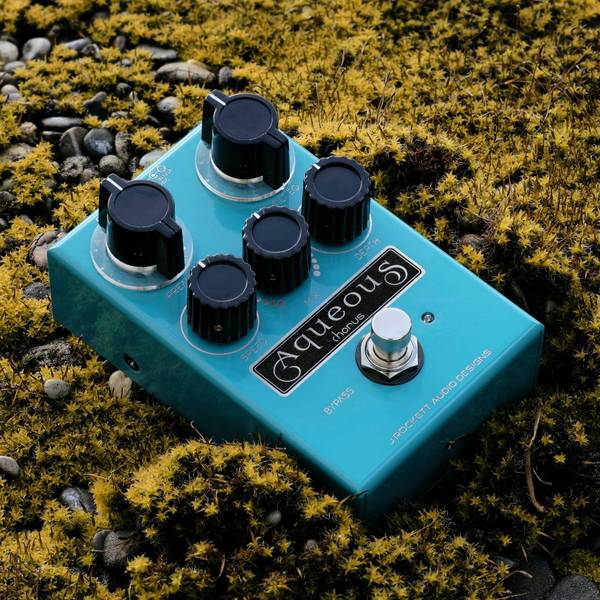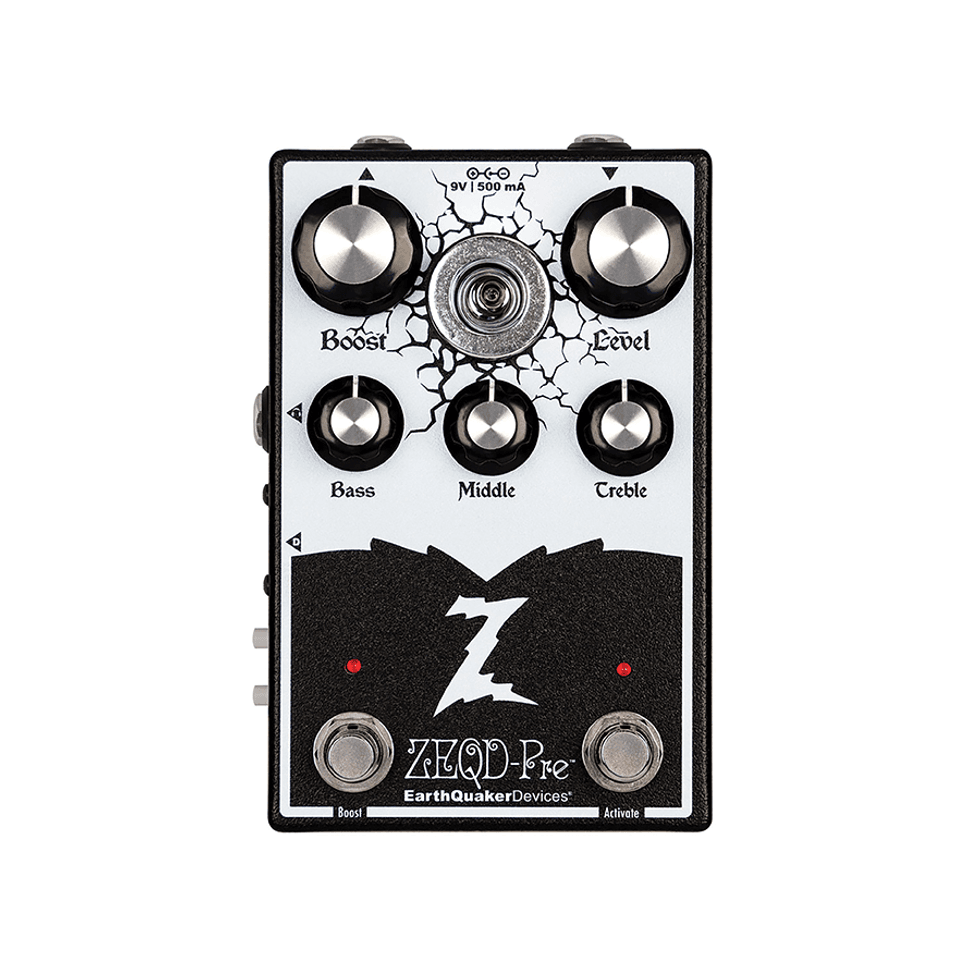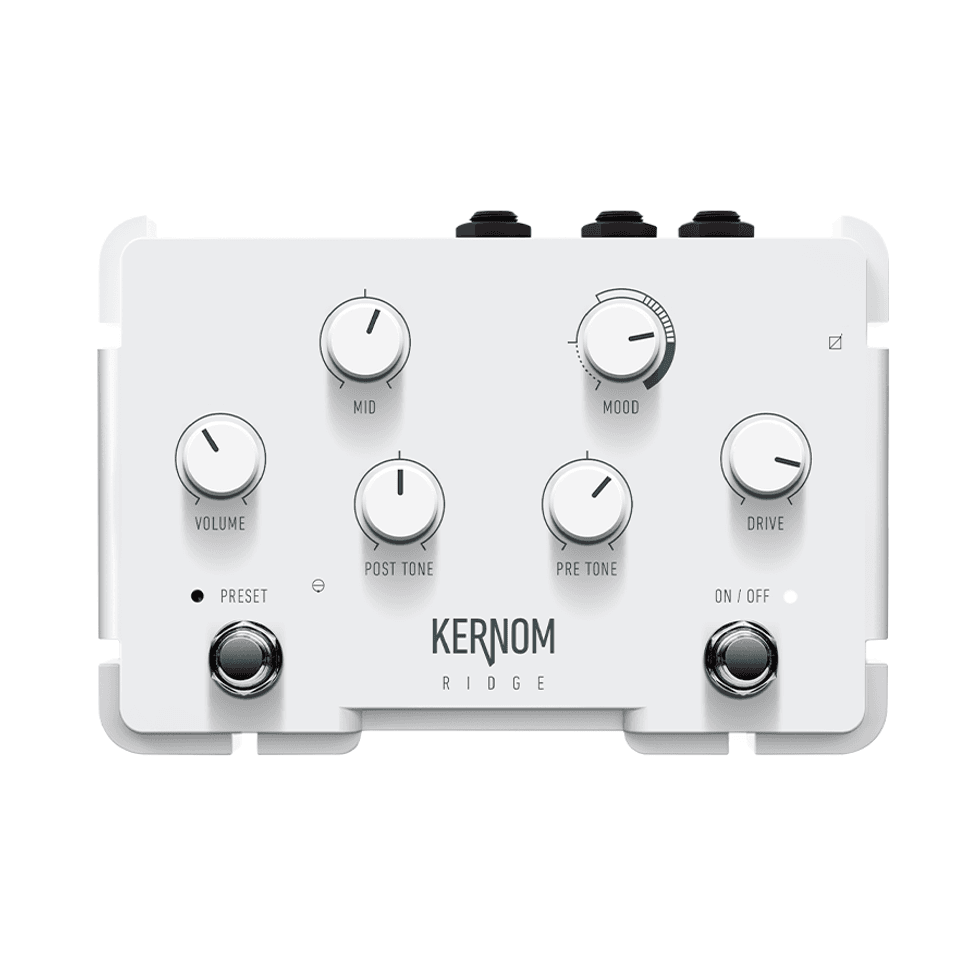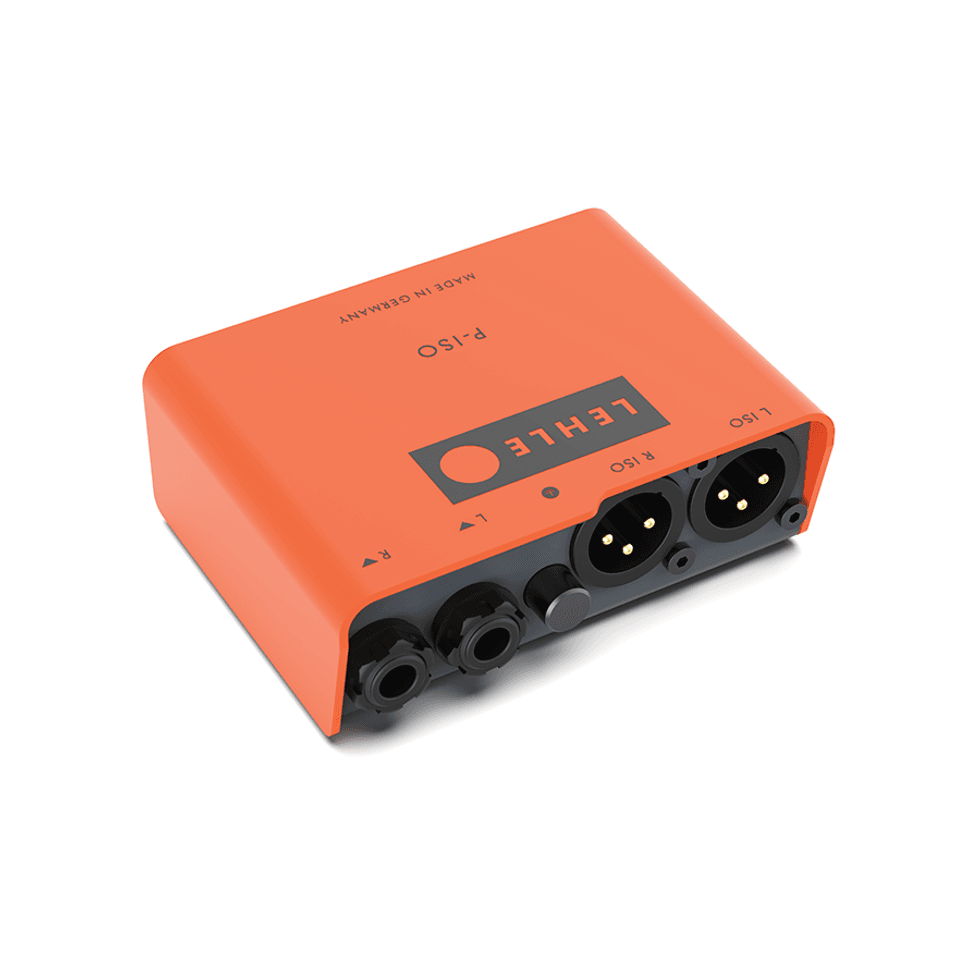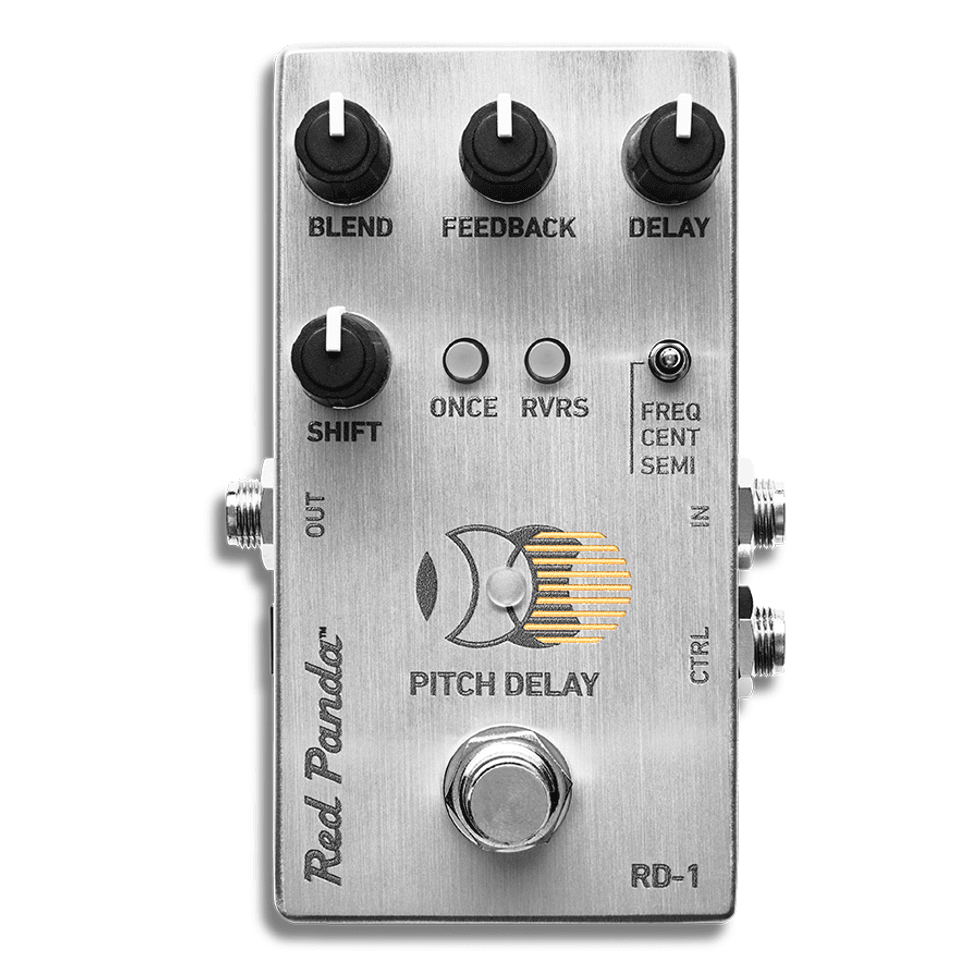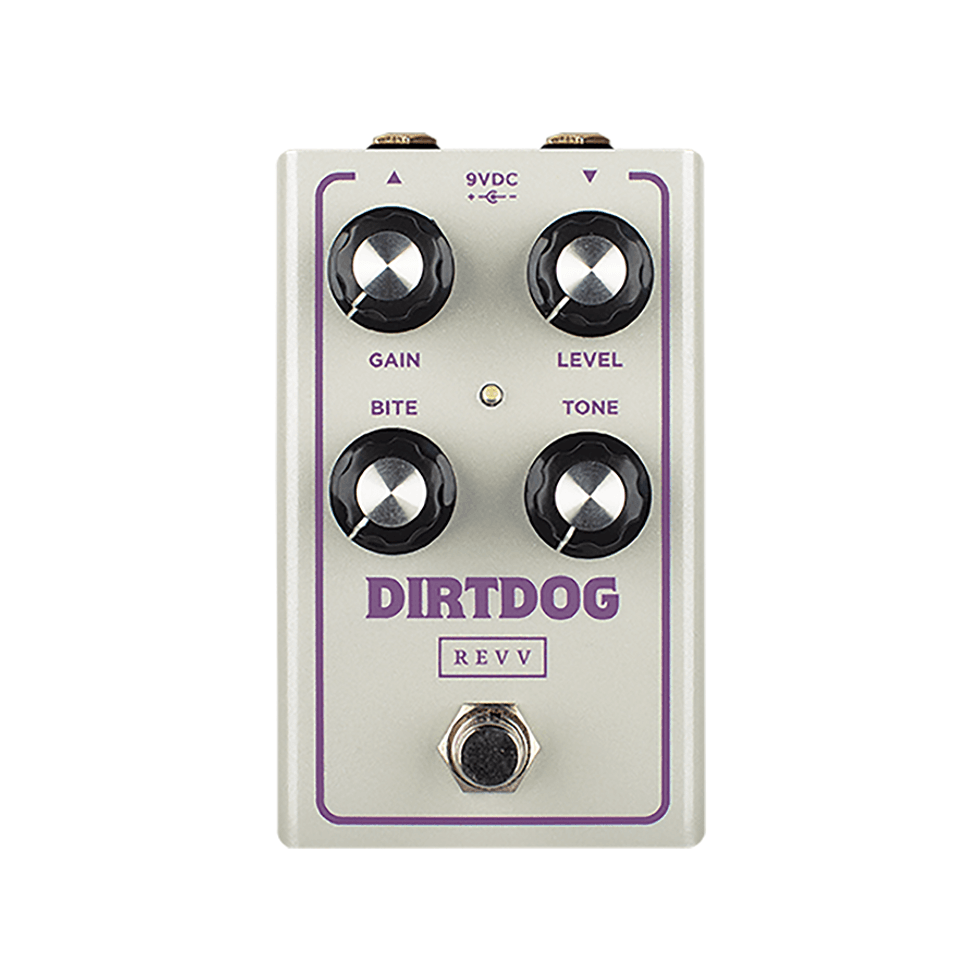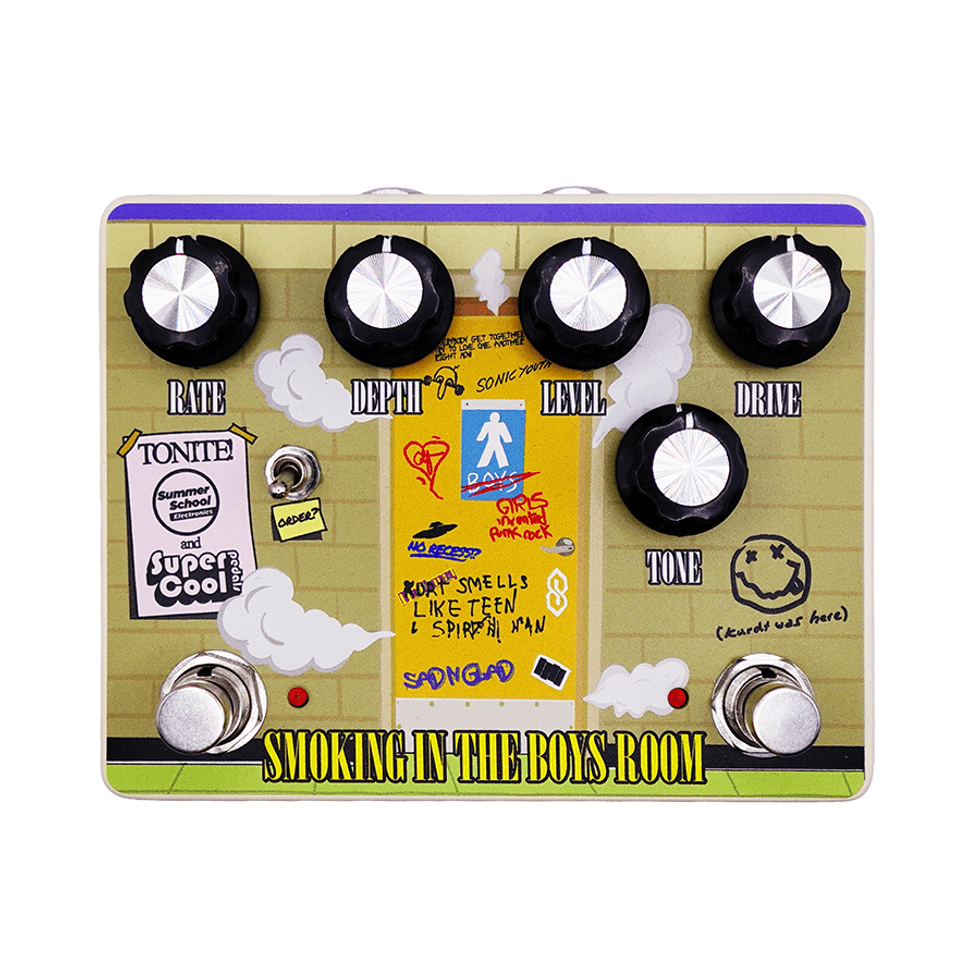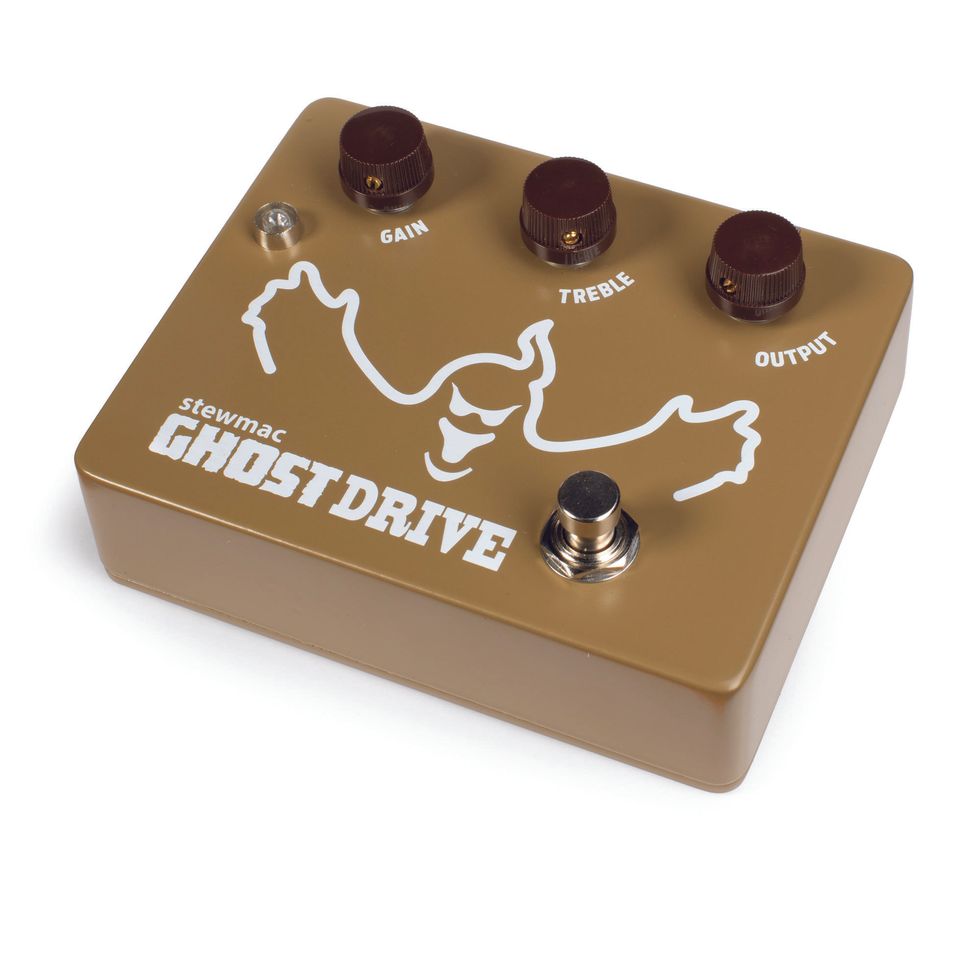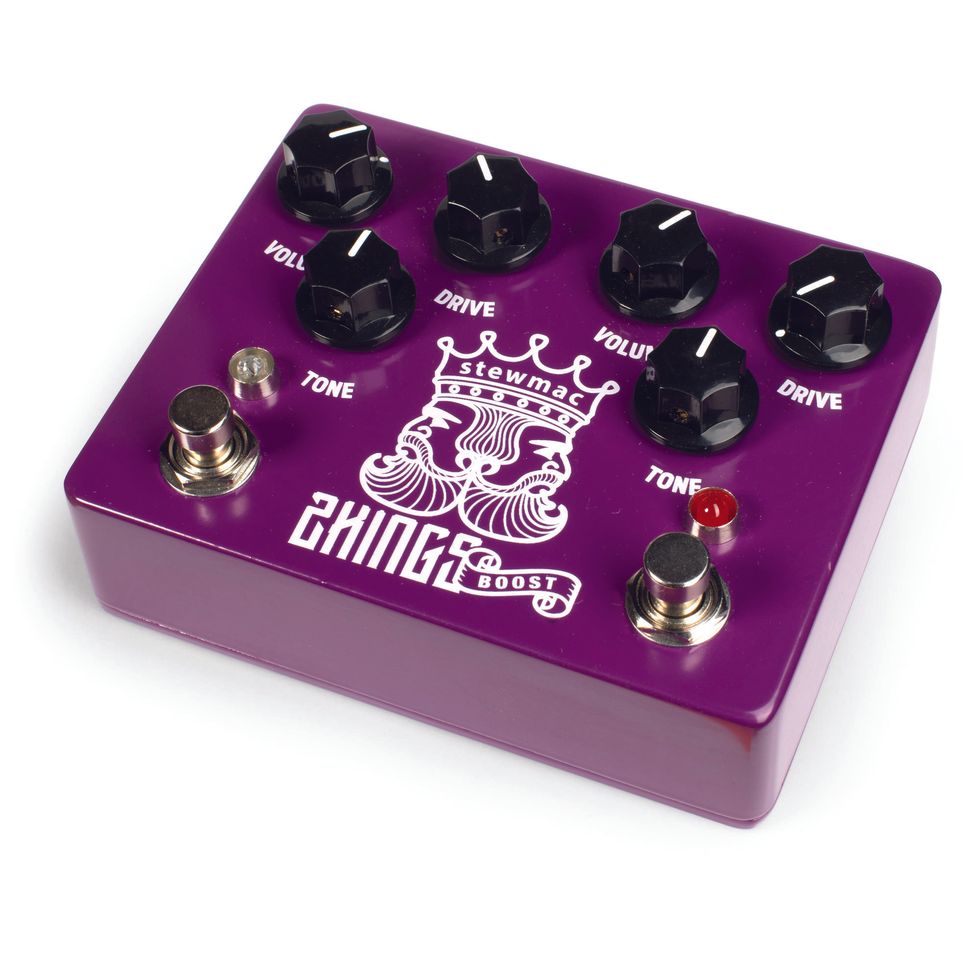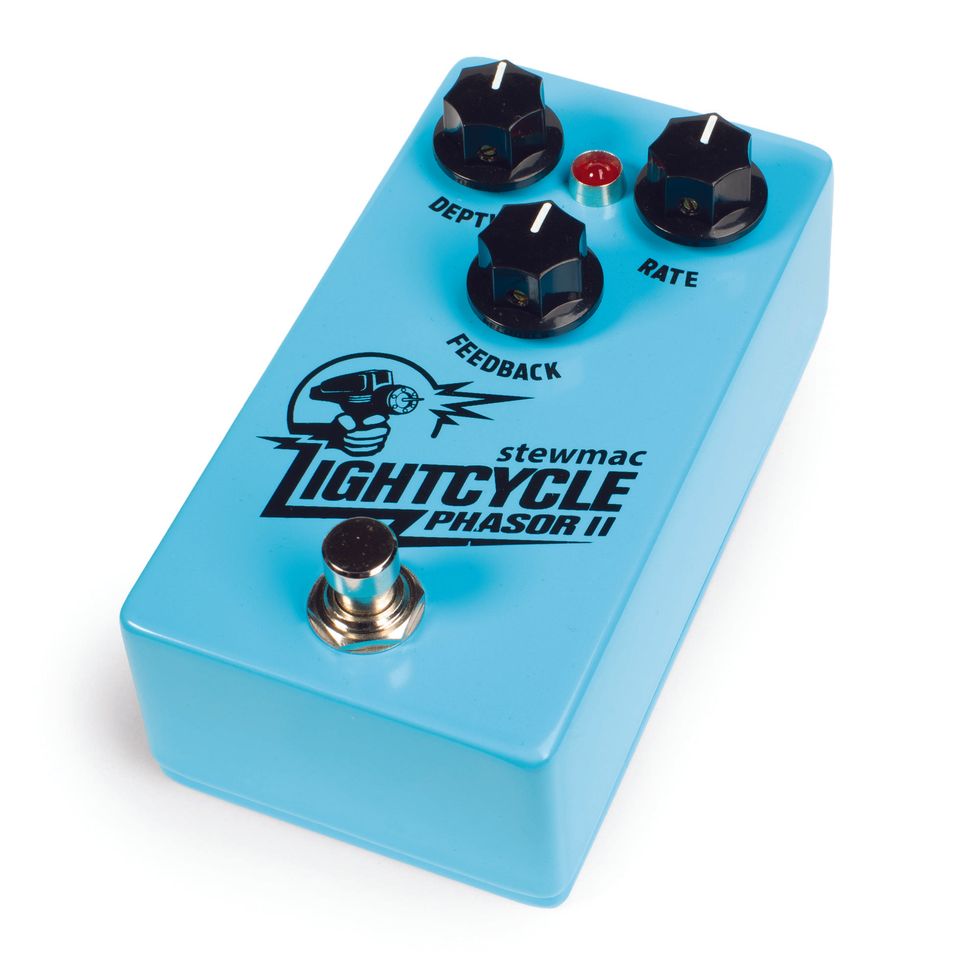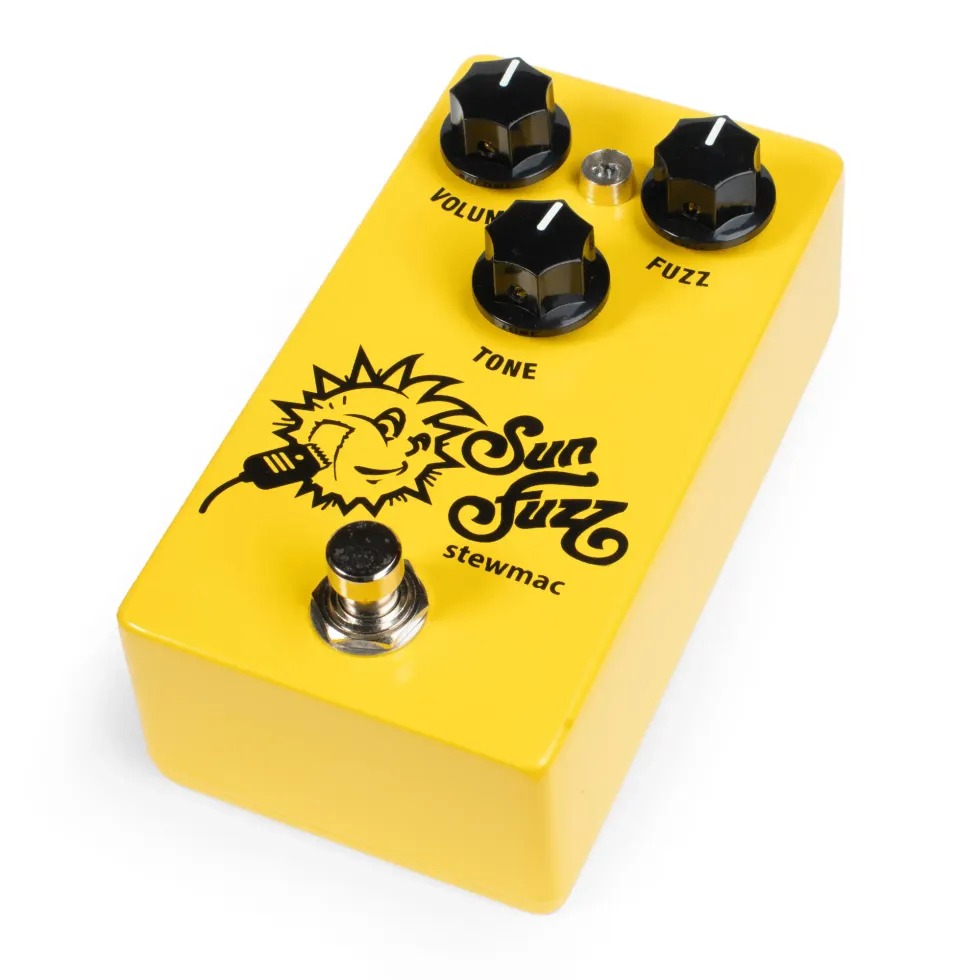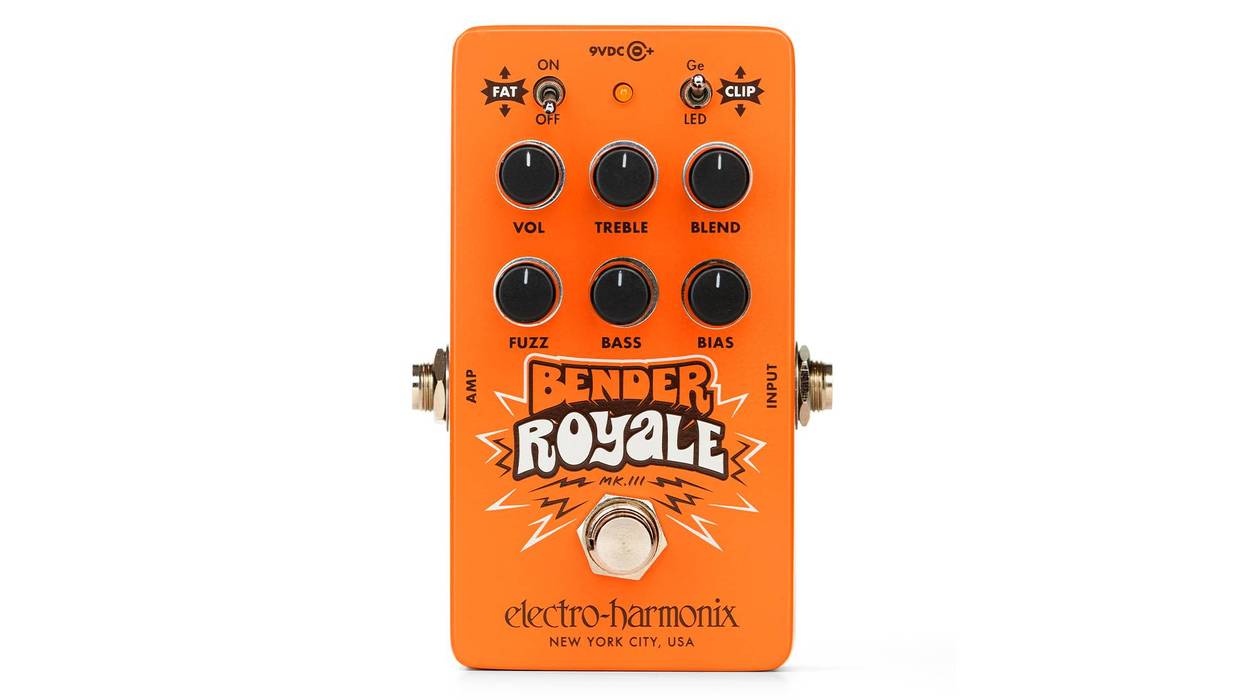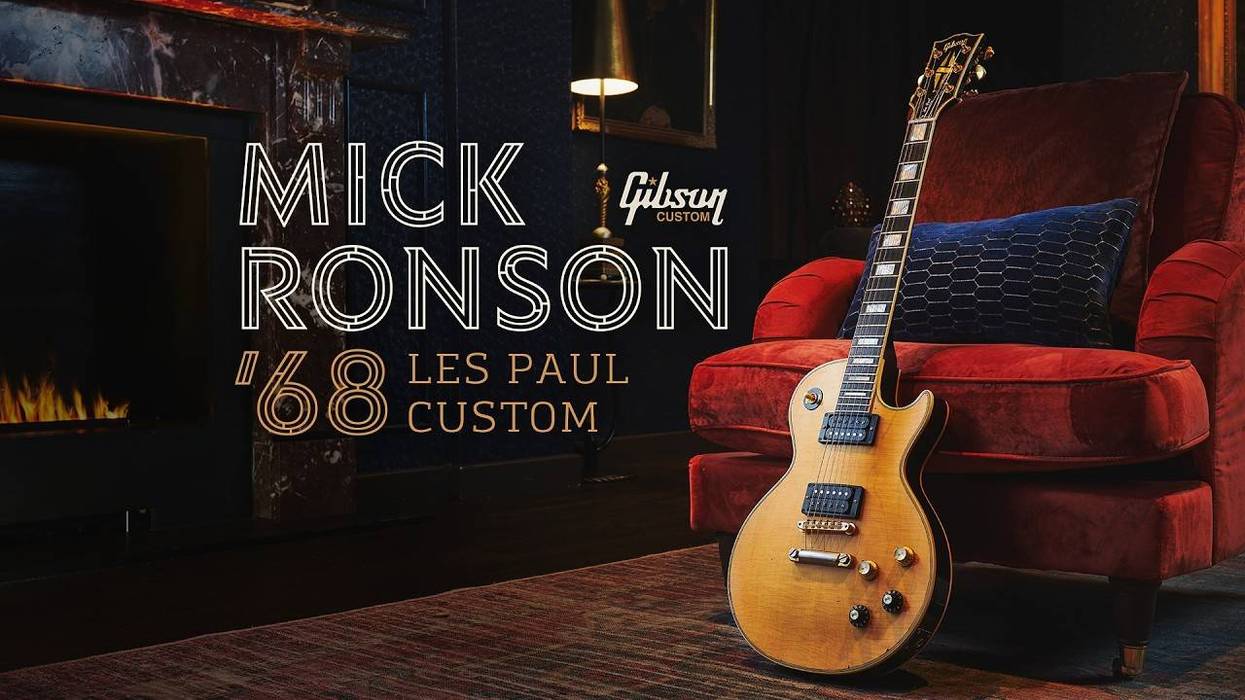Sustainability has become a watchword of our times. Overfishing, excessive drilling, and mass deforestation have driven entire industries around the globe to scramble for alternative ways to produce high-grade products that consumers expect. The guitar industry is no stranger to depleting resources: That coveted Brazilian rosewood—a common fixture on fretboards for decades—is now a thing of the past. Just two years ago, industry juggernaut Gibson was raided for allegations of violating the Lacey Act, a law set up to regulate illegal trafficking of woods into the country. Gibson was eventually cleared of all charges, but just the fact that the U.S. Government investigated a guitar manufacturer should give us all pause.
As inhabitants of the beautiful foothills of the Colorado Rockies, the crew at Born Guitars doesn’t take their surroundings for granted. Owner Jonathan Miller, along with cofounders Campbell Davis and Dan Hehnke, are striving to walk the walk and are committed to doing little things every day in the goal of promoting a greener world.
“The shop stays pretty warm in the summer and pretty cool in the winter,” Davis says with a laugh. “We don’t have the luxury of being in a really high-tech green facility, but we do what we can with what we have. We also decided as a company to all have eco-passes, which is a local transit bus pass, and even though it’s only three of us, we try to encourage each other to use public transit a lot.”
To save energy, the Born Guitars workshop is warm in the summer and cool in the winter, says Campbell Davis.
Other sustainable business practices for Born include purchasing carbon offsets and planting at least one tree for every guitar they make—a minimum of 100 trees a year. They don’t stop there: Every piece of tonewood used by Born is acquired sustainably, which means it was salvaged, harvested, or reclaimed in a manner that has little or no detrimental impact on its surrounding ecosystem and does not disrupt the life cycle of a forest.
“Our pistachio wood, for example, is salvaged in entire trunk sections when commercial pistachio farmers remove the trees from their farms once they’re no longer able to produce commercially valuable nuts,” Miller says. “Our redwood is also salvaged in large trunk sections, but these are trunks that were left on the forest floor from logging operations in the late 1800s.”
Born’s mahogany, maple, alder, and swamp ash come from commercial logging operations that are either 100-percent certified by the FSC (Forest Stewardship Council) or are sustainably operated under the watchful eyes of forestry and government officials. “Our mahogany actually comes from community-managed forests in the lowlands of Mexico, Guatemala, and Honduras where a harvest usually consists of a single tree,” Miller explains. “Many of these communities lack roads, so trees are often removed from the forest by donkey. None of the commercial logging operations that we source woods from practice clear-cutting.”
The Big Picture
This budding guitar-building operation based just outside of Boulder, Colorado, may be small, but Born is fueled by passion and big ideas. “My vision is to be an example in the industry and lead it on a more sustainable path,” remarks Miller, who says he consciously modeled his company’s mission to represent his own personal beliefs and aspirations.
The beginnings of Born Custom Guitars can be traced back to Miller’s professionally unsatisfying days working in the financial industry in Chicago. “I had a dream of getting involved in the guitar industry in one way or another for eight or nine years—it was a long time coming. I set out a plan and I knew that in that point in my life, I didn’t have enough business acumen to feel comfortable starting any sort of business and pushing forward in any industry, so one major step was getting out of the financial industry and learning how to start a business. That was when I moved to Colorado and got my MBA at CU-Boulder.”
Once ensconced in the ‘Centennial State,’ Miller began researching how to turn his dream into reality. “I visited a few guitar shops on my own and that was the tipping point where I said, ‘If these guys can do it, I can do it too.’ So I kind of blindly jumped into it and used my savings to start the company and haven’t looked back.”
Though he had a bit of experience working with guitars, Miller felt he didn’t have enough technical expertise. “I had taken some classes in guitar building and had modified some guitars already. I had a Gibson Explorer that I stripped out and rebuilt and repainted. I’d also built a guitar or two on my own by hand.” It was around this time that he received some help from one of the industry’s true living legends: Fender Custom Shop founder, John Page.
Born Guitars’ head luthier Dan Hehnke says his background in aircraft design gave him an edge in guitar building.
“I managed to get his phone number and information, and we had a long conversation over the phone one day,” recalls Miller. “I completely spilled my guts about my beliefs, my passions, and what I wanted to do. He told me his history at Fender and why he left there, and about how he started his own company, and his process and his beliefs about the guitar. We just instantly clicked and he’s always been really supportive, and every time I talk to him or send him a simple email he’s always gone above and beyond to write like a three-page email with every little detail of his process—down to the brand of tools he uses and where he’s sourced things. It’s been a real blessing to work with him and gain that kind of inspiration and insight.”
Page’s seal of approval and support has done wonders for Born, a startup trying to make a name in an undeniably crowded field of guitar makers. “That validation has been important to us because we are a very young company,” says Davis. “A lot of companies start with someone coming out of Gibson’s or Fender’s custom shops after 20 or 30 years. Obviously, they have all that clout with them, which we didn’t have, so to get some validation from somebody with John’s status has been huge for us and really boosted our confidence.”
Feeling as though he’d acquired the right amount of business acumen and direction, Miller began to put his company together. But he needed a staff. “I met Jonathan through an internship posting at CU,” says Davis. “He was looking for an intern to help him finish writing a business plan and figure out financing and whatnot for a custom guitar-building company. What started out as a two-week project obviously turned into a lot more than that.”
With a business-minded partner onboard, Miller began to scout out an expert luthier who could help bring their vision to life. “I had a friend who was into a lot of startups and had met Jonathan, and she told me about the job,” says head luthier Hehnke. “I contacted them and they had me come in with some of my guitars. I was really impressed by their commitment to sustainability and using cool woods and making everything really custom.”
Hehnke, a native of Santa Barbara, California, had been building his own guitars for well over a decade, but his professional background is in the aeronautical engineering industry. Hehnke feels that the experience he’s had working with and designing aircraft parts has helped his guitar building. “It really gave me a good background for the precision aspect of it—approaching it from a precision-engineering design problem.”
From Stump to Stage
As the team came together, Miller continued to refine and rework his business plan, while hammering out the last details of the two guitar models his company would offer: the single-cutaway OG and the double-cutaway MG.
“It took a long time,” Miller says. “I spent about a year just designing the initial OG model. I was really trying to pull from what people like about lots of guitars. I talked to tons of guitarists about what their favorite guitars were and why it was their favorite.”
The way he envisioned them, the OG and MG models would serve as a template for prospective customers to create the ultimate guitar of their dreams. “They’re really a chassis,” Miller offers. “We tried to create shapes with a really broad appeal and nice aesthetic quality, but these shapes can be modified in several different ways to reflect an individual’s personality and playing style.”
While respecting the history of electric guitar design, Miller wanted to push the envelope in terms of quality and ergonomics. “For the basic body shapes, I really tried to make something that was our own, but didn’t ignore what had been done in the past. Obviously certain designs and guitars are staples in all music and they will be for a long time to come—we aren’t trying to take that away from anyone. But we felt we could improve on some of those models and make them a little better—really focus on ergonomics, try to get the best tone, and make our own innovations to build a better guitar.”
Anders Osborne’s Pistachio Guitar
The Bigsby-equipped Anders Osborne OG Drop was tailor-made by Born Guitars for the blues guitarist and showcases some of the finest woods Born has acquired from Oregon. “The body and neck are made of salvaged Port Orford cedar,” says Born founder Jonathan Miller. “This particular wood came from a log left behind after a forest fire. Port Orford cedar is not really cedar, but actually called Lawson cypress and is a species of conifer.”
Prized in Asia where it’s used for coffins, shrines, and temples, the wood was first discovered in Port Orford, Oregon, and is known for being resonant, strong, and stable, yet remarkably lightweight. It’s also highly fragrant, adds Miller. “We love cutting this wood—it makes the whole shop smell amazing!”
The drop top on Osborne’s guitar is made of reclaimed pistachio wood. The tree was cut down after its nut harvesting life had passed. “Pistachio is nearly as hard as ebony, and adds a nice punch of clarity and sustain to this guitar,” Miller explains. “Our pistachio comes from California groves. Because these trees are typically cut down after about 60 to 70 years of useful nut production, it’s rare to find pieces large enough to make guitar tops.”
Osborne’s top is a beautiful example of wood that might normally be chipped and used as firewood. Born also uses pistachio for fretboards. Miller shared another cool fact about pistachio wood: It glows bright green under a black light.
Premier Guitar contacted Osborne to find out how his new guitar plays. “I’ve been using my Born for about a month now, and it has become one of my main guitars,” he reveals. “It’s perfectly set up to my specs and plays with so much personality. It’s exciting and joyful each time ‘Pistachio’ and I get together. These guys really pay attention to details and character when building their guitars. I love it!”
Born is dedicated to customization, offering clients a staggering array of options. The base price, which typically runs at $2,495 for drop tops and $2,995 for carve tops, includes choice of woods, bridge, pickup type and configuration, neck shape, finish, control layout, headstock, nut material, and fret size. Options take off from there.
“Initially we get to learn a lot about the customer,” says Miller. “We want to know what music they like to play, what they want to do with the guitar we’re going to build for them, what kind of guitars they currently own, what kind of amps they play through, their hand size, and what techniques they use when they play. Do they wrap their thumb around? Do they use formal, classical technique? We really want to know exactly what they like about the guitar, how they play it, and how they want it to sound. When we deliver their instrument, it’s not the guitar we think is the best, but what they think is the best.”
Born offers 12 types of woods for the bodies, necks, and fretboards, and this selection is at the crux of the company’s sustainability efforts. “We use Port Orford cedar, Douglas fir, and walnut,” says Miller. “All these have been used before but they’re not staples within the guitar industry—a lot of people don’t know about them. A lot of our Port Orford cedar has been reclaimed from forest fires in Oregon. The same goes for our myrtlewood, which is pretty rare and hard to come by.”
Other tonewoods found in Born guitars include cherry, pistachio, maple, and alder, and the company is always searching for new alternatives. For Hehnke, building guitars with these woods can be a challenge. “It makes you a little nervous sometimes working with an ancient piece of wood,” he says. “You really don’t want to screw up. Old woods can be so well dried that they’re truly special. Port Orford cedar is a great wood and we love the way it sounds. That one is pretty tough to machine because the grain is so straight that if you don’t design the machining program just right, the bit can come along and just tear out an entire strip of wood where you didn’t want it to.”
Sustainable logging practices are important to Born and they only work with companies that adhere to them. It’s all about knowing the source.
“When we talk with our suppliers,” Miller says, “our first questions are, ‘How do you harvest your wood? Where does your wood come from? Can you tell us what region of the country it came from, what lumberyard it came from, what tree stand?’ The further we can get down to where the wood came from the better, and if a supplier says, ‘I don’t know and we don’t really worry about sustainability,’ those are the companies we stay away from.”
This depth of inquiry allows Born to provide customers with the full background of their new guitar, which makes for a more personal experience. “When our customers receive a mahogany guitar or a swamp ash guitar with a redwood top, we want to be able to provide a story with the instrument,” Miller says. “It’s cool when you get a guitar and you can say, ‘This top came from southern Oregon and was reclaimed from a stump that was cut 200 years ago from a 2,000-year-old tree.’ That’s an amazing story to tell.”
Born Custom Guitars uses what they call a “higher-yield building method” for their necks. This includes using less wood than typical methods and a scarf joint to strengthen the neck.
Born’s sustainable goals extend to their own guitar-building processes; especially in the way they craft their necks. “A lot of manufacturers’ necks are cut out of one piece of wood, which in turn requires you to start with a much thicker piece of wood,” Davis explains. “We use a piece that’s only as thick as the neck itself. But given the way we do a scarf joint between the actual neck and headstock, we’re able to use less wood and still get the string pull we want with the cut angle. Structurally, it’s even sounder because two pieces of wood glued together is stronger than one solid piece. A lot of people don’t know that.”
Future Is Born
To be sure, Born has large ambitions for affecting deeper societal change, but they are also out to prove that it’s possible to build a great, one-of-a-kind guitar without blindly adhering to tradition. “People resist change—it’s just human nature and you have to fight for change a lot of the time,” says Davis. “We want to be that change that people eventually give in to.”
Larger guitar companies, such as Martin and Taylor, are already making changes to their own process and materials with this reality in mind. But there is more work to be done. “It’s silly to not think about it,” Miller says. “We’re living in a society where we’re trying to ignore our vanishing resources until it’s an issue. That’s not a good way to run this planet. We need to be proactive, like you would be with your health. You eat healthy and you exercise so you don’t get sick, and we should apply the same principle to how we treat this earth. When we cut down trees or use chemicals, we need to think about whether or not that’s going to affect climate change or get into our water supply. Maybe it won’t affect us in this generation, but there’s plenty of proof out there that we’re impacting the world we live in.”
At the end of the day, it comes down to good choices and smart decisions. This is where Miller and Born Custom Guitars draw their greatest hopes. “I believe in people,” says Miller. “People want to do good things, they just don’t always know how, or what options are out there. The more easily available you make those options to the customer, the more likely they are to go with the better, greener route.”


